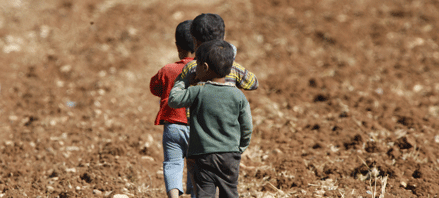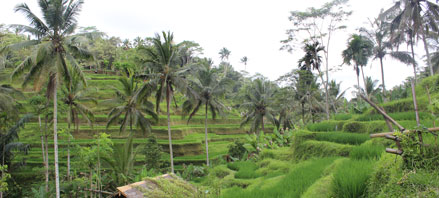Agriculture Initiative in Refugee Camps
It not only helps refugee families develop small scale domestic food gardens near their homes, but also celebrates their gardens with festivities, bringing together everyone in the community.
With the sweltering sun beating down on their flimsy makeshift homes, conditions are harsh for the hundreds of thousands of people living in the world’s refugee camps.
Their poorly-constructed houses, made up of plastic sheets, discarded plastic bags and pieces of cardboard, offer little protection from the burning sun and scorching heat.
The neglected soil is trodden on and blown about, but rarely harnessed to grow food or improve the environment.
But researchers at the Centre of Agroecology, Water and Resilience have worked with the Lemon Tree Trust to change this and to help transform the landscape of refugee camps with trees, plants and crops. Their project is crucial in making refugee camps greener, healthier and more productive places to live.
Their poorly-constructed houses, made up of plastic sheets, discarded plastic bags and pieces of cardboard, offer little protection from the burning sun and scorching heat.
The initiative has used an urban agriculture project to transform the Domiz camp in the north of the Kurdistan region of Iraq, between Mosul and Dohuk, which is home to more than 40,000 refugees. At first, staff handed out seed packets and distributed olive trees within the camp, launched a garden competition and made a short film about the gardening and tree planting they were carrying out.
Within 18 months, 2,000 trees had been distributed, 420 rose bushes and potted flowers given out and 450 bags of fertiliser and numerous packets of seeds had been passed around the refugees living in the camp.
Olives, lemons, grapes, figs, pomegranate, apricot and peach trees were all blossoming and the team have also developed a commercial garden within the camp.
Olives, lemons, grapes, figs, pomegranate, apricot and peach trees were all blossoming and the team have also developed a commercial garden within the camp.
But one of the project’s biggest impacts will come from the construction of a large demonstration and training garden within Domiz camp, where camp managers and residents will offer their expertise on construction, irrigation and design.
This will be the first such project of its kind within a refugee camp in Iraq.
Back to Sustainability and Resilience





